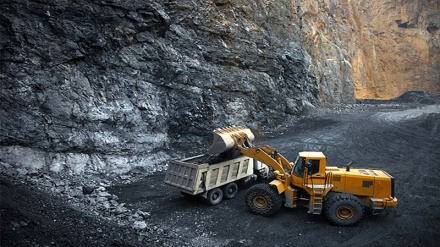Iranian Market (15)
Welcome to another episode of the Iranian Market. In this episode of our weekly program, we’re going to discuss Iran’s petrochemical industry and its characteristics.
The petrochemical industry produces chemicals using oil and natural gas as major raw materials. Oil and natural gas are composed primarily of hydrocarbons. Most petrochemicals contain hydrogen or carbon or both. The petrochemical industry is concerned with the production and trade of petrochemicals. It directly interfaces with the petroleum industry, especially the downstream sector. A major part is constituted by the plastics (polymer) industry. With the improvement of science and technology and expansion of hydrocarbons use, thousands of products have been obtained from oil and natural gas. Today a vast range of industrial products are the goods related to petrochemical industry.
Petrochemical industry is the main supplier of consuming products needed in most of chemical industry, electronics, textile, medicine, auto industry, domestic appliances and food industry.
One of the most important characteristics of petrochemical industry in comparison with crude oil and natural gas is its high added value.
Economically, the value of petrochemical products in global market is more than crude oil and natural gas especially for the countries that have invested in and supported the products of this industry in a vast chain, from the basic materials to final goods.
One of the characteristics of petrochemical industry is the variation of its products which supplies the basic materials needed for thousands of workshops and factories. In other words, petrochemical industry is a mother industry which feeds many other sectors.
Applying modern technologies in different fields like the production of oil and petrochemicals, Iran has gained a great power in this field in comparison with its international competitors.
Bandar Imam Petrochemical Complex (BIPC) expands at a 270- hectare area in the southern province of Khuzestan.
It is 160 kilometers away from Ahwaz and 84 kilometers from Abadan.
Iran has been gradually growing into a center for production of petrochemicals in the world. Petrochemical industry is one of the significant components of oil industry and is one of the principal industries in Iran which has an influential role in Iran’s economy.
What is considerable in Iran’s export chart is that petrochemical products have taken a high position. More than forty percent of Iran’s none- oil exporting products is related to petrochemical industry.
Iran’s petrochemical products are exported to tens of countries around the world.
The subcontinent, South Eastern Asia, China, Far East, European countries and West Asia import 13, 23, 22, 18, 5, and 19 percent of Iran’s petrochemical products respectively.
Though under US’ unilateral pressures and sanctions in recent years, the Islamic Republic of Iran has never halted its activities in the field of producing petrochemical goods and instead has improved day by day in spite of restrictions. This is evident by the fact that at the time of sanctions, one of Iran’s sources of foreign income was from petrochemical products.
Iran’s petrochemical industry has distinguished characteristics which attracts foreign and domestic investors. One of the most important privileges of Iran’s petrochemical industry is the existence of rich sources of oil and gas for feeding this industry.
The Islamic Republic of Iran ranks fourth in the world regarding its oil reserves. Iran has also the second biggest gas reserves in the world.
Iran’s easy access to gas reserves and its historical background in petrochemical industry has made this country an attractive hub for foreign investors.
Iran’s Bandar Abbas Refinery is one of the largest in West Asia with a refining capacity of more than 300,000 bpd.
This refinery was constructed in an area of 7 square kilometers near the city of Bandar Abbas in southern Iran.
The feed for the refinery is the heavy crude oil plus some condensate which is transferred from Sarkhoon gas treating plant. Some portion of refinery products is exporting, while the remaining is supplying the local market in order to meet the demand.
While the countries in the region have to recruit non- local forces in different sectors of petrochemical industry, Iran enjoys competent workforce. This point is actually one of the positive points of the Islamic Republic’s petrochemical industry.
AE/ME


